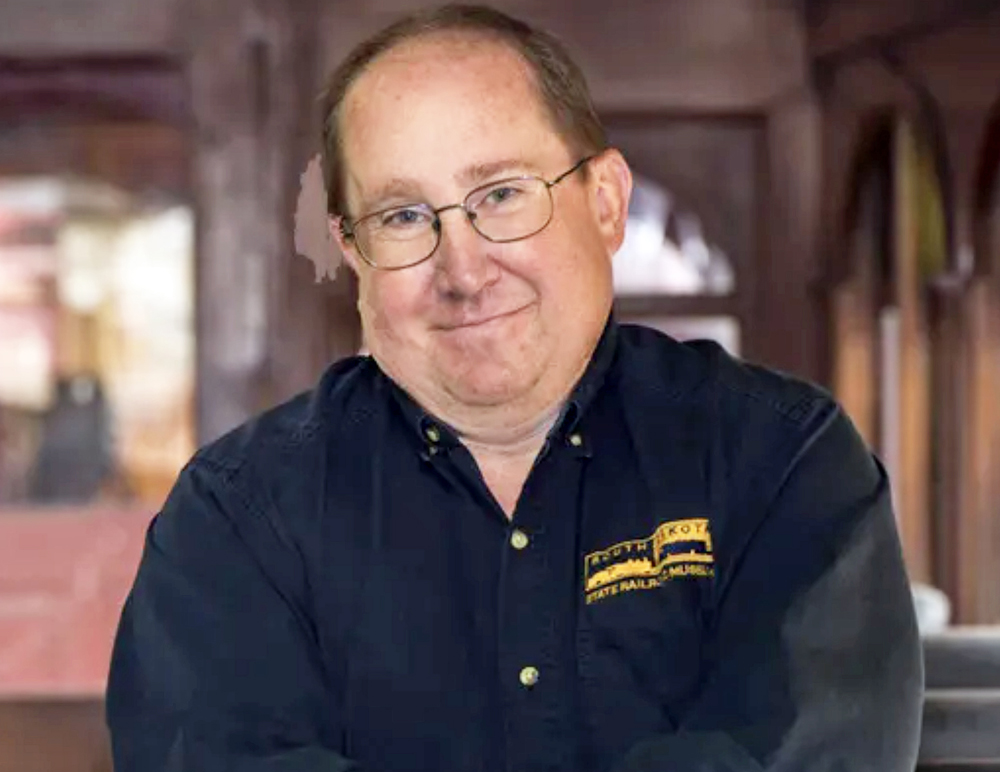TOLEDO, Ohio — A former CSX Transportation crew member dismissed over a social media post is suing the railroad, the Brotherhood of Locomotive Engineers and Trainmen, and an arbitration board, seeking to overturn his dismissal.
Kirk E. Knopp, of Fostoria, Ohio, filed suit in April in U.S. District Court for the Northern District of Ohio, Western Division. The suit says a social media article posted in May 2019, about the death of a 21-year-old man struck and killed by a CSX train in Fostoria, included a derogatory comment posted under Knopp’s name. Following an investigation, Knopp was terminated for violating the railroad’s social policy; Knopp contends he did not mention the railroad and did not violate its policy.
The case went to the National Railway Adjustment Board Special Board of Adjustment No. 1185, used by CSX and the BLET to arbitrate matters including claims of wrongful termination. In the suit, Knopp says he was told it was not necessary for him to attend and that he therefore was denied his opportunity to participate and provide testimony; that the board did not consider the harshness of termination for one violation of policy; and that his social media activity was protected by the First Amendment. He seeks to be reinstated with full back pay and benefits.
The case has been assigned to Judge James G. Carr.














If CSX policy is that employees cannot post on social media about the company, named or not, under penalty “up to, and including” termination, than Mr. Knopp has no case.
If his post was deemed as offensive, “derogatory” as stated, or crossed the line into racial/social discrimination/degradation/disparaging, in any way at all, Mr. Knopp has no case. (Policy or not, discriminatory speech, derogatory speech, hate speech, etc… are valid grounds for immediate dismissal, unless specifically discussed in company policy. Then, it’s whatever consequences are specifically discussed, most likely “up to, and including, termination.”)
The First Amendment does not allow people to say/write/post whatever they want with zero consequences, for “The First Amendment guarantees freedoms concerning religion, expression, assembly, and the right to petition. It forbids Congress from both promoting one religion over others and also restricting an individual’s religious practices.” (Quoted from Cornell Law University webpage.) It does NOT make legal any and all speech.
Hate speech, discriminatory speech, and certain other “expression” circumstances (yelling “FIRE!” in a crowded theater when there is no fire, slander, defamation, incitement to lawless actions, threats, blackmail, plagiarism, solicitation of crime, etc…) are not only wrong, and not protected by The First Amendment, but any and all bad consequences of such speech are fully legal. (Hence why the examples I gave in parentheses above, are all forms of illegal speech.)
These consequences can include, fines, jail time, and in some circumstances, termination of employment. (And also many other consequences not mentioned here.)
The fact he was informed it “was not necessary” he attend the arbitration hearing, does not equal his being “denied the opportunity to participate” if he willing chose to not attend the hearing. (NOTE: If he attended and was not allowed to speak, this point is no longer valid.)
So, unless something is not being said, it appears Mr. Knopp was lawfully and legally dismissed from employment for his own actions, and has no case. The fact that the arbitrator approved of his termination is extremely telling here. (The union, BLET, sent the case to legal arbitration in Mr. Knopp’s behalf. The arbitration board ruled in CSX favor, allowing Mr. Knopp to be terminated from CSX employment. His legal grounds ended there in almost every case.)
If the above story has the correct facts of this case, the judge will lawfully, and rightly, rule against Mr. Knopp. (And CSX could then have a valid case for defamation/slander if Mr. Knopp continues to say he was illegally terminated.)
Well put.
This is funny, because the sole purpose of websites (like Glassdoor) is for employees (former or current) to share how they felt about their employment at said company. These are strictly opinions.
Some companies do restrict their employees on what they say on social media, but gladly and freely allow their executives to post early and often through their corporate communication department. I know this bothers a large number of people.
If the gentleman in question did post something derogatory about something that happened during his employment and it can easily be determined where he works even though he didn’t share that information, he is still in hot water.
Kirk Knopp is shown in a June 2010 BLET News as the Division 937 Delegate at the BLET Ohio State Legislative Board Quadrennial Meeting.
Where does it say you have to trade your first amendment rights for a paycheck in the us constitution?
Termination is a ridiculous punishment and he wasn’t allowed to defend himself.
Et al, if the company has a policy prohibiting employees from posting anything on social media that can be construed as being related to or badmouthing said company(without explicitly naming the company) and an employee does just that…whatever the discipline outlined in that policy is what the employee gets. It might seem harsh, but he’s not the first and won’t be the last. If the judge was smart and new precedence, he’d toss the suit out on the street.
Social media is a social disease.
smell test is bad. it would be informative if er coul see the actual post. if CSX not mentioned ehat the heck..
yes, something indeed is missing here.
Something’s missing here. Did Kirk Knopp post some bad stuff about a trespasser who got hit? If so, if that’s what happened, Knopp should have been given a reminder of the social media policy, and nothing more.